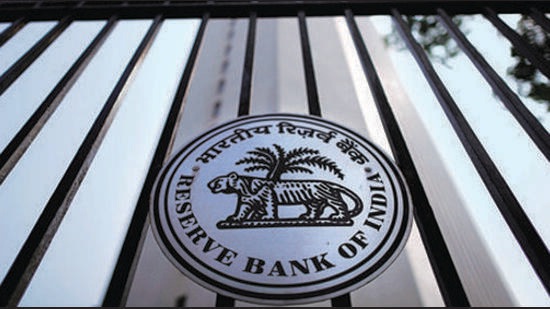Centre may nudge states for support over inflation
“Only monetary policy and the interest rate management (done by the central bank) is not enough to keep inflationary pressures under check. The Centre is supplementing it with various fiscal measures such as adjustments of excise and customs duties,” one of them said. “But, states should also contribute in easing supply pressure.”
The Centre, which will continue to take measures to supplement the Reserve Bank of India’s monetary actions to tame inflation, may also nudge states for their support as 10 states have inflation higher than the national average of 7.41% in September, four people aware of the development said.

Different states have different inflation rates ranging from 4.03% in Delhi to 9.44% in West Bengal, partly because of state-level policies, year-on-year data show, hence their active participation in taming overall inflation is also required, they said, requesting anonymity.
“Only monetary policy and the interest rate management (done by the central bank) is not enough to keep inflationary pressures under check. The Centre is supplementing it with various fiscal measures such as adjustments of excise and customs duties,” one of them said. “But, states should also contribute in easing supply pressure.”
According to latest inflation data for 22 states in September, annualised inflation rates in 12 of them were below the national average of 7.41%. These states are Assam (7.08%), Bihar (6.38%), Chhattisgarh (6.44%), Delhi (4.03%), Himachal Pradesh (4.54%), Jharkhand (7.22%), Karnataka (5.81%), Kerala (6.45%), Punjab (5.6%), Tamil Nadu (6.93%), Uttarakhand (7.22%) and Jammu & Kashmir (6.82%).
States that recorded inflation rate higher than the national average are Andhra Pradesh (8.06%), Gujarat (7.95%), Haryana (7.95%), Madhya Pradesh (8.65%), Maharashtra (8.03%), Odisha (8.06%), Rajasthan (7.45%), Telangana (8.67%), Uttar Pradesh (7.79%) and West Bengal (9.44%).
“The Centre is making efforts to ensure unhindered supply of key commodities across the country so prices of both food items and inputs for MSMEs (micro, small and medium enterprises) do not escalate, and it will also suggest states to ensure ease of supplies,” a second person said.
Similarly, states could have joined the Centre in keeping fuel prices low, the official said. “Barring few opposition-ruled states, others reduced VAT (value-added tax) rates on petrol and diesel, when the Centre cut excise duties to reduce price burden on the consumer. They did not do so despite appeals. A synchronised action by all would have worked well,” the official added.
The Union government twice cut excise duty on petrol and diesel in November 2021 and May 2022 to protect consumers. While many states followed the Centre by reducing VAT on fuels, some states, mostly ruled by the opposition parties, did not sacrifice their revenues.
The fiscal and monetary measures to check inflation is an ongoing exercise, the first official said. “Meanwhile, the government is also focusing to ensure that prices of key vegetables – onions and potatoes – do not surge due to supply issue,” he said. The government has allowed unhindered import of potatoes from Bhutan. It also has an elaborate plan for onions and other commodities, he said.
A committee led by the Union department of food and public distribution will “review prices of all major commodities and ensure appropriate timely measures are taken to keep a check on the prices in view of the interest of the farmers, industry and common consumers”, a third person familiar with the development said.
A review of further price-control measures is likely to analyse “possibilities” of a cut in the Agriculture Infrastructure Development Cess on items beyond edible oils, the person cited above said.
The central government is certain to rapidly release significant quantities of onion, a volatile item, to regions that don’t produce the vegetable from a federally held reserve of 250,000 tonnes for 2022-23, said a fourth person, a government official.
“The onion release from buffer stock will have two conditions. One, it will be only for non-producing states, such as those in northeast. Two, buffer-stock onion can’t be released in the vicinity of major onion markets. An initial quantity of 35,000 tonne has already been issued,” the official said.
The onion buffer is maintained by the department of consumer affairs under a price stabilization fund, which aims at effective market intervention to cool prices when availability plunges.
The government has so far not intervened in the markets directly through its so-called open market sales scheme (OMSS), which provides federally held cereals to private sellers at a discount.
“However, the government is well aware of the prices scenario and monitoring it regularly. OMSS could be resorted to. India has sufficient stocks,” the fourth person said. The department of food is likely to ask states to ramp up steps to detect hoarding and black-marketing of essential items.






